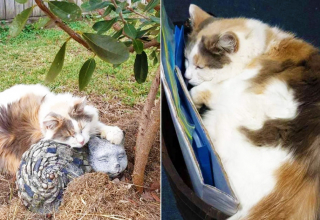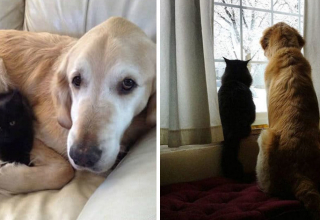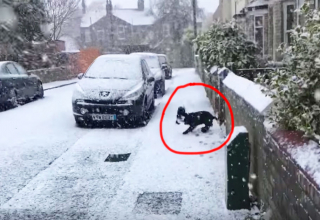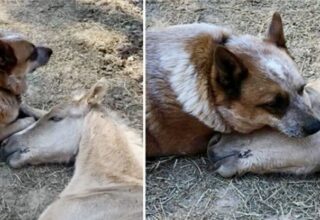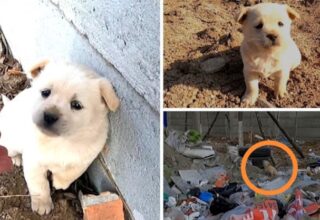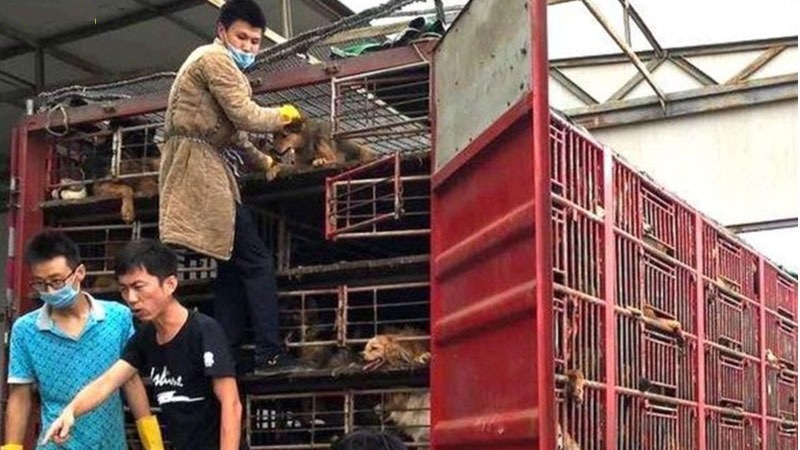
300 dogs waited in dirty cages for more than ten hours.
It was scorching hot. Many people were hungry, thirsty, and in agony due to illness, injury, or the simple misery of being crammed into such cramped quarters. As if they were just freight, they were jammed side by side.

Even more distressing, there was a potential that these pups’ suffering would go unnoticed since they were kept concealed within the confines of a dog meat truck.
On the sunny evening of July 23, Chinese residents noticed the truck, which started in Shandong province, on the road and immediately recognized its eventual destination: a dog meat market in northeastern China’s Jilin province. Citizens then used WeChat, a popular messaging and phone app, to alert Qinhuangdao activists.
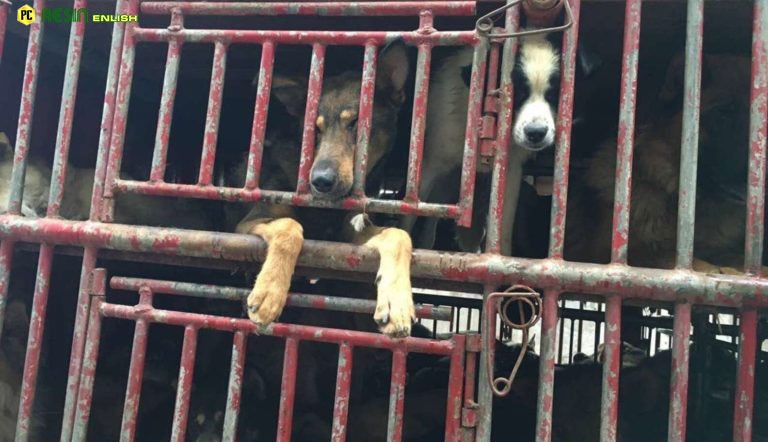
The race was on to save all 300 people from being slaughtered.
Until today, no dog trucks have been halted before reaching Jilin, China’s second largest dog meat market, according to Peter Li, a Chinese policy specialist with Humane Society International (HSI).
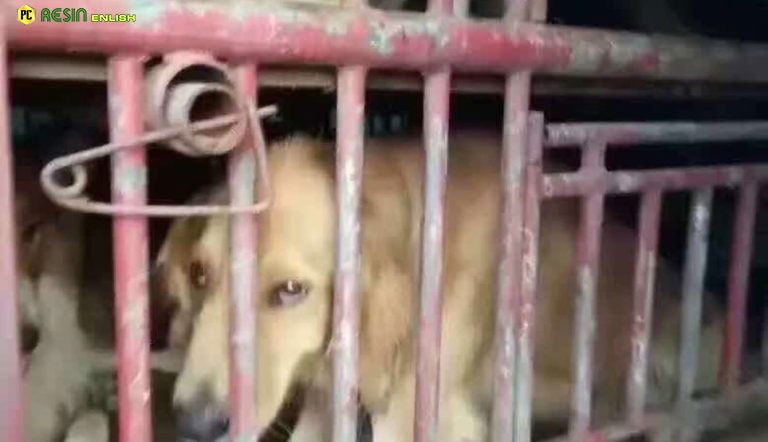
Animal rights activists in the area jumped on the road and followed the vehicle, reporting it to law police. While eating dog meat is allowed in China, police were dispatched to see if all of the canines on board had valid health certificates for transit.
Advocates from China Animal Protection Power (CAPP), a coalition of Chinese organisations opposing the dog meat business that was established with the help of HSI, quickly joined them.
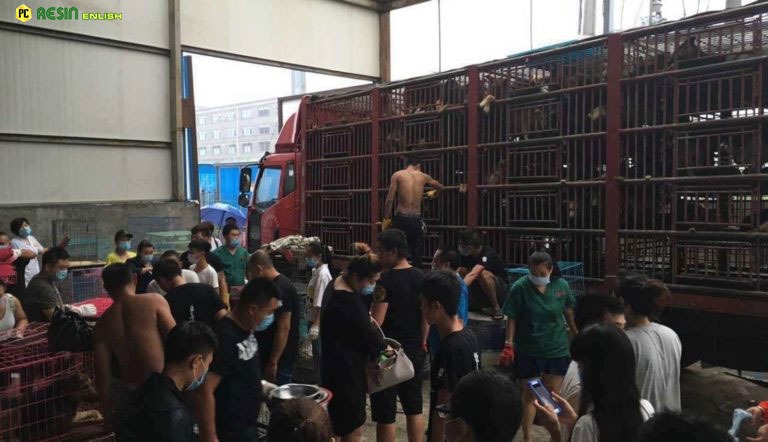
The vehicle transporting the dogs was finally halted by police officials as soon as it arrived in Liaoning province, and after a two-hour conversation with the truck driver, animal welfare campaigners, and police officers, they were able to persuade him to hand up all 300 canines.
“Police took all of the dogs and placed them in the custody of the activists with no compensation paid to the dealers,” Li said in a statement. “This was the first significant highway rescue in Liaoning since the Yulin dog meat festival last month.”
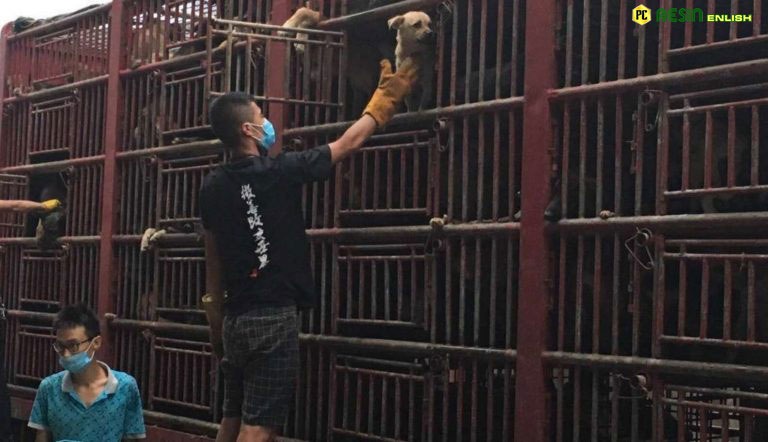
Several of the dogs rescued, according to Li, appeared to be ordinary domestic dogs or rural guard dogs, since they were clearly used to human contact and wanted to be stroked after they were liberated from the truck’s captivity.
“There are no dog farms in China,” Li stated. “The bulk of the dogs murdered for food are stolen pets or stray dogs,” says the report. Dog meat dealers in Jilin, which has a substantial Korean population, have cited Korean culture as a justification for obtaining and eating dog meat, according to Li.
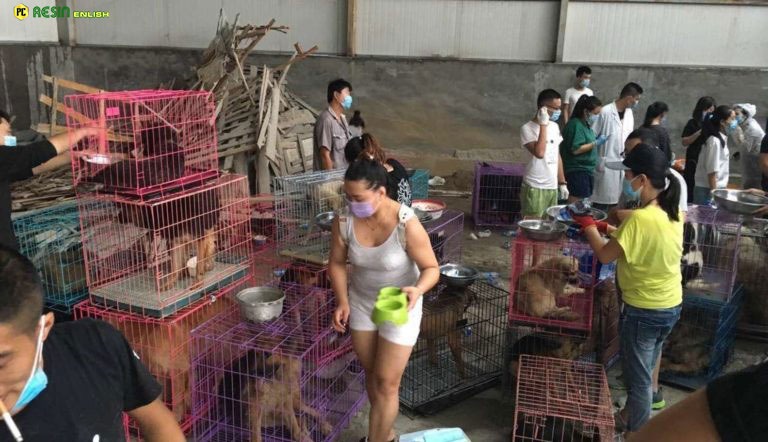
Li told The Dodo, “The notion is that ethnic Koreans eat dog meat as a traditional culinary preference.” “This isn’t always the case. Ethnic Koreans, like the rest of the Chinese, do not consume dog meat the same way they do pork or fish. Dog meat consumption in Jilin, like in Korea, is extremely low, and it is not a common household meal. However, Han Chinese dog meat dealers have been known to overstate ethnic Korean liking for dog meat in order to promote their company and generate demand for dog meat.”
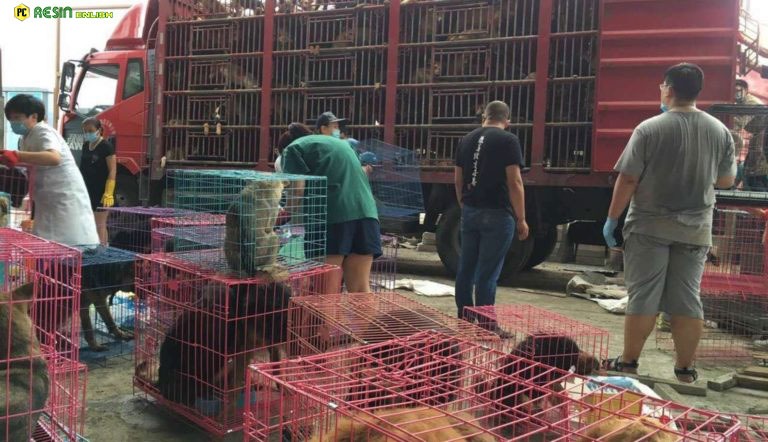
The rescued dogs are currently receiving veterinary treatment and will be placed for adoption in Chinese homes.
“This amazing rescue serves as a great source of inspiration for animal advocates around the country,” Li said in a statement. “It demonstrated that the dog meat trade can be prevented if the country’s laws are strictly enforced by law enforcement.”
If you like this post, remember to share it with your friends!

